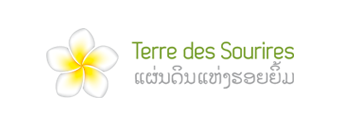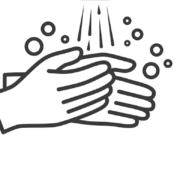Our Mission
TdS’ mission is to fight poverty in rural and remote areas of Laos. We focus on the essentials: access to clean water and sustainable sanitation, basic hygiene, education, training of future social entrepreneurs and sustainable prosperity for the communities we target.
Our projects aim to improve the living conditions of isolated communities living in extreme poverty by empowering their inhabitants. We wish to offer the possibility to the precarious populations, living below the poverty line, to acquire the necessary knowledge and skills enabling them to take ownership of the actions carried out and to become its bearers.
Through collaboration with various specialised partners, and with adequate support adapted to the specificities of each beneficiary community, TdS does everything possible to offer a better future to the most disadvantaged.
Our Vision
The philosophy of TdS is to provide support to those who request it, but above all to establish a prosperous learning relationship by offering communities the opportunity to become actors and not spectators of the development projects we carry out. Learning how to learn to ensure the sustainability of projects. The proverb of Confucius, adapted by Mao Tse Tung, perfectly reflects our vision “Don’t give me fish, teach me to fish instead”.
Empowering the isolated communities for which we work is at the heart of our actions and guarantees a sustainable impact of our projects.
Our Values
We work with respect of the ancestral values perpetuated by the Laotian communities as well as the hierarchical rules established within the country.
Trust, integrity, transparency, honesty and respect are among the values that ensure the consistency and smooth running of the projects we carry out.
Our Areas of Intervention
Water Supply
Access to safe drinking water is the most urgent need of rural communities. More than 7,000 villages (85% of the population) do not have access to drinking water and suffer significant health and food consequences. The surrounding water points are, for the most part, dangerous and polluted by the presence of heavy metals. The monsoon period also has an impact on living conditions and contributes to the precariousness of rural communities.
Heavy metals
The subsoil is rich in heavy metals (arsenic, lead, mercury, copper) that contaminate groundwater at levels well above the maximum acceptable limits.
Monsoon
The rainy season further aggravates the problem by increasing bacteriological and pesticide contamination (organophosphates and pyrethroids).
The first objective of the pilot phase of our “Lao Aqua Empowerment” project is to meet this primary need by setting up water kiosks and validating a concept for large-scale deployment. In parallel, a feasibility and viability study for a sustainable sanitation system must be carried out.
Education
The villagers are aware of the importance of education and appreciate the importance of their children’s schooling and education.
Our Project; “Lao Aqua Empowerment“, has a medium-term goal of establishing regional “academies” with access to digital technologies, computer skills, languages and MOOC-based programs (Phase III of the project). Training in organic farming is also one of our objectives. To achieve this, we count on the support and the important network of our President, Dr. Soli Makholiso Deputy Director of EssentialTech at EPFL.
Health
Rural populations are regularly subject to parasitic and/or bacterial hydric diseases. Training in basic hands hygiene is not only essential, but also part of the water projects we run. Our team has the task of offering soaps to the beneficiaries of our facilities, and of transmitting a systematic message on the basic rules of hands washing to avoid major cases of dysentery, acute diarrhoea and other intestinal/gastric diseases.
In addition, in emergencies, villagers have to travel long distances of 10 to 30 kilometres to the only ‘hospital’ in the area, which is often poorly equipped. Otherwise, according to custom, they turn to the village healer.
TdS aims to improve the health of rural populations by transmitting knowledge and teaching simple gestures.
In the longer term, we hope to be able to respond to the health needs of rural communities through partnerships with organisations and/or associations specialising in this field to strengthen local and rural health systems.



